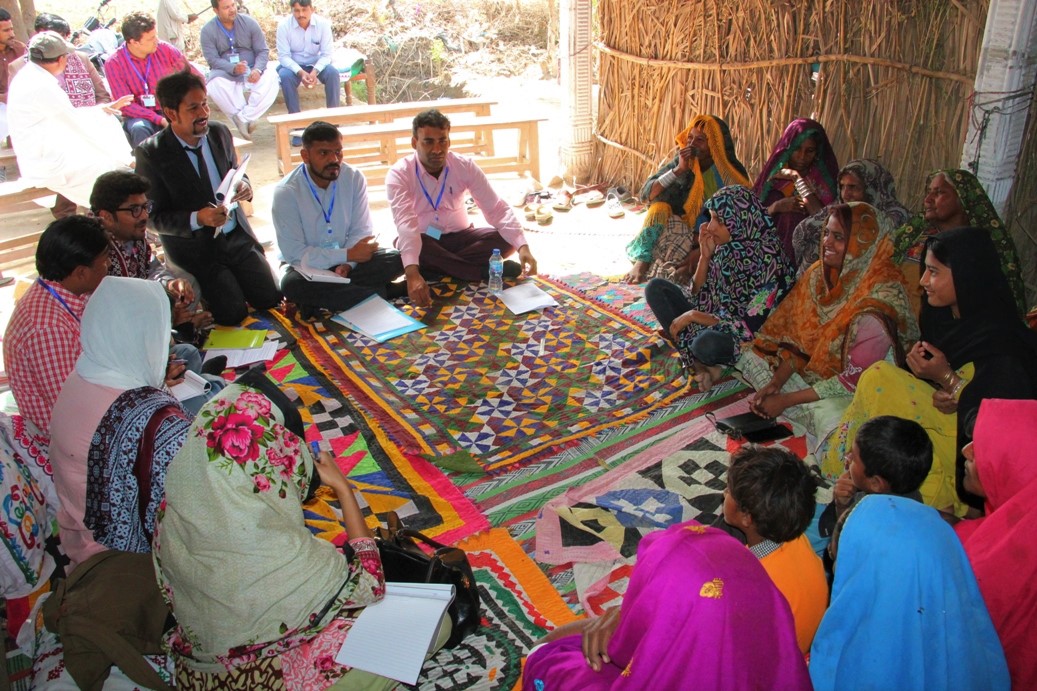CHS story of change: Tearfund’s commitment to aid coordination and complementarity (Commitment 6)
In the run up to the launch of the Humanitarian Accountability Report 2020, we have spoken to different organisations who have achieved certification against the Core Humanitarian Standard (CHS), to learn more about how this process is driving changes in policy and programmes. And ultimately, how it is helping aid work better for the people affected by crisis.
Here, CHS Alliance member Tearfund shares insights into what they are doing to meet Commitment 6 of the CHS which states that communities and people affected by crisis receive coordinated, complementary assistance.

Women from a rural community in Sindh, Pakistan, sharing their feedback with Tearfund’s staff and partners during a community visit. Taken by Eleazer Ranald, Tearfund Pakistan.
Working in a complementary and coordinated manner has always been a priority for Tearfund. We work in 50 countries through over 250 partner organisations, and coordinating efforts with local government, church and CSOs is the standard way of working for us. We do strive for continuous learning and improvement, and CHS certification gave us a new perspective on coordination and helped us take it to a new level.
- Recently, Tearfund ran an accountability pilot in which partner organisations and Tearfund’s field offices within the country were encouraged to collect and share among themselves non-sensitive feedback from the communities where they worked. Sharing this information among partners working on similar projects allowed them to identify common trends, anticipate challenges and learn from each other. The pilot project was designed to boost our accountability to affected populations but it also strengthened coordination between various Tearfund partners and the field offices within South Sudan.
- Tearfund often provides training to its partners in order to help them meet the CHS standards. Many of them are community development organisations with limited experience in delivering humanitarian assistance. In the Philippines, many participants of a series of learning events on CHS noted that this training equipped them with knowledge and allowed them to start meaningfully engaging in various coordination meetings to which they were invited. Some participants said that this training gave them the confidence they needed to speak up in coordination meetings where conversations were usually led by big INGOs, the Government and the UN.
- Building good rapport with the local and national government is critical for NGOs including Tearfund to be able to do its work effectively. In Pakistan, CHS certification increased Tearfund’s credibility and enhanced its reputation with the Government which in turn meant that Tearfund could expect to have support for new projects, improved access to communities in need and protection in difficult situations.
These three examples demonstrate the value of CHS certification to Tearfund in one commitment, and highlight our passion for accountability to our partners and communities that we serve.
The Humanitarian Accountability Report (HAR) 2020 will highlight eight more stories of CHS change, as well as providing an evidence-based overview of how accountable the aid sector is today. To attend the virtual HAR 2020 launch event and be one of the first to access the report’s results, sign up to the free virtual Global CHS Exchange, 6-8 October 2020.
